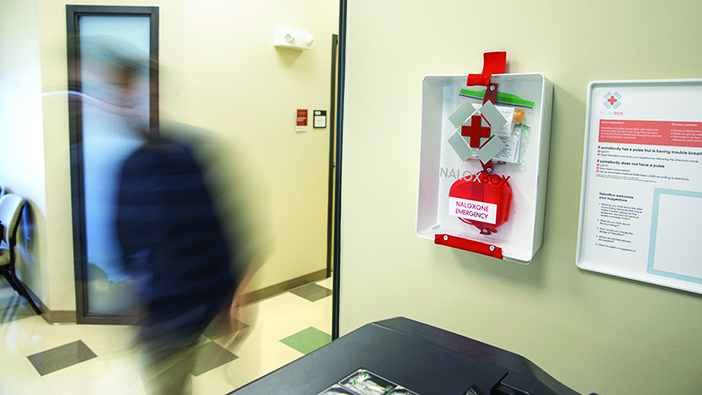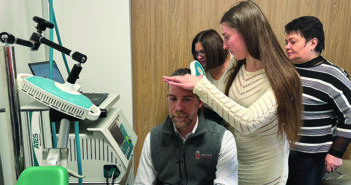Researchers are working with the community to understand how technology can help prevent opioid overdose deaths.
When Ju Park, PhD, MHS, was studying epidemiology in graduate school, she volunteered with a harm reduction organization that trained local community members on how to prevent a drug overdose. She traveled around the state to demonstrate how the medication naloxone can be used to reverse an overdose from opioids if administered in a timely manner.
After one session, a mother whose daughter had a substance use disorder approached Park to share a heartbreaking story: the daughter, who had been in and out of rehabilitation centers, had recently experienced a relapse. She locked herself into a bathroom alone, overdosed on drugs, and died. The mother expressed gratitude for the naloxone training and told Park that she was eager to do more to help other families dealing with addiction.
Park couldn’t bear to tell the woman what she was thinking: training bystanders how to administer naloxone wouldn’t have saved her daughter, because nobody had been present to help.
“It made me wonder: what are we doing to help people who are using drugs alone and in secret?” recalls Park, now an assistant professor of epidemiology and of medicine (research) at Brown.
That question continued to preoccupy Park as she established the Harm Reduction Innovation Lab at Rhode Island Hospital with the mission to develop, implement, and evaluate interventions to promote the health and well-being of people who use drugs.
One approach that may point toward an answer: overdose detection technologies that actively or passively monitor, detect, and alert responders of a potential overdose event. Park is the lead author of a new JAMA Psychiatry commentary that explains what these technologies are and how they work. The title belies the authors’ optimism around these emerging tools: “A New Frontier in Preventing Solitary Drug Overdose Deaths.”
Park and her team aren’t just talking about overdose detection technologies—they are engaged in high-impact research to learn if these tools make sense for Rhode Islanders, and how the technologies could be used to address the opioid crisis locally as well as in the rest of the country.




